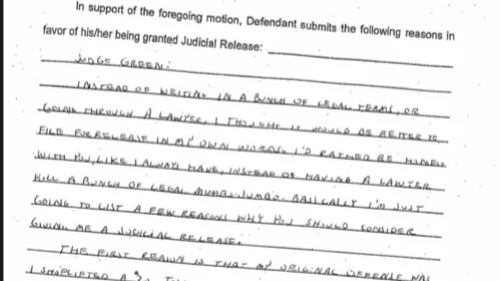After being caught shoplifting from The Buckle in April of 1999, Michael Smith was indicted by the Cuyahoga County Grand Jury on a charge of theft on May 10, 1999. He was arraigned on May 24, 1999. Michael Smith pled guilty to one count of theft on July 6, 1999, a fifth degree felony. Michael’s legal counsel notes that during his time in the city jail, Michael “has shown genuine remorse for his stupid act. He is very frightened and perhaps that is punishment in and of itself.” She goes on to say his stay in jail was “so traumatic, it cured him of any future propensity to commit a crime.”

Michael was able to avoid prison this time, and was sentenced on August 3, 1999, to one year of community control sanctions (i.e. probation). Michael Smith violated his probation on January 24, 2000 by failing to provide a urine sample, and his probation was continued with the same conditions. He violated his probation yet again on October 31, 2000 by failing to provide a urine sample. His community control sanctions were finally terminated, and he was sentenced to Lorain Correctional Institution to a term of six months. Michael Smith was delivered to the Lorain Correctional Institution on November 6, 2000.
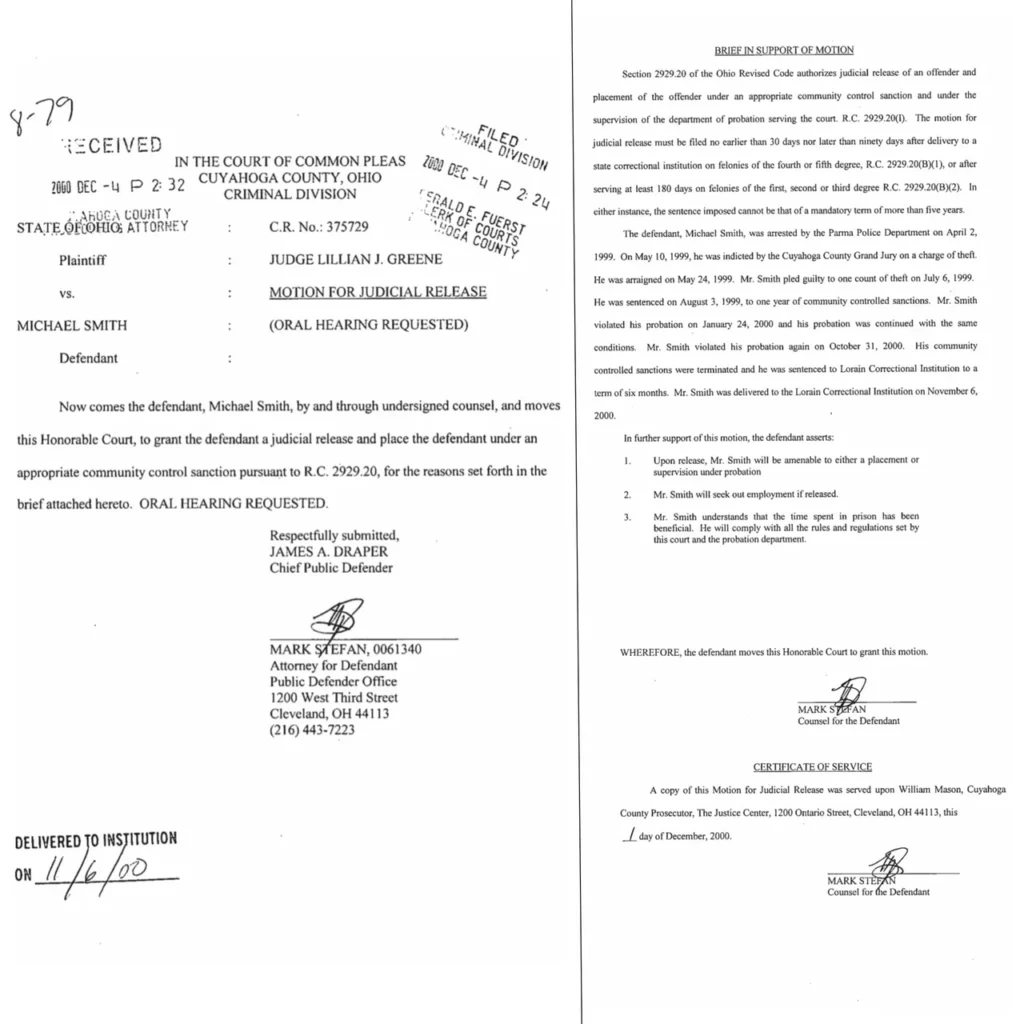
On December 4th, 28 days after arriving to prison, Michael Smith filed a motion for Judicial Release. In his hand-written letter to the Judge (posted below), Michael writes that he “should never have come to court in the first place because it was merely shoplifting”. He also lists “probation works for me” as a reason he should be granted Judicial Release, despite having violated his probation twice, and despite having also been on probation at the time of his shoplifting arrest at The Buckle. He says the urine sample violations should not count since he offered to take a blood test, something he admits he knows is not possible in Cuyahoga County.
Michael promises that he is a changed man. He will never steal again. He’s going to college for accounting and promises to get a job. “What I’m trying to tell you is that I straightened out my life. I accomplished what probation was meant for a person to accomplish.”
Unfortunately, that ended up not being the case. Join us next week as we continue to break down some more of Michael Smith’s many crimes. This is only the beginning of a very long series.
Click images to enlarge
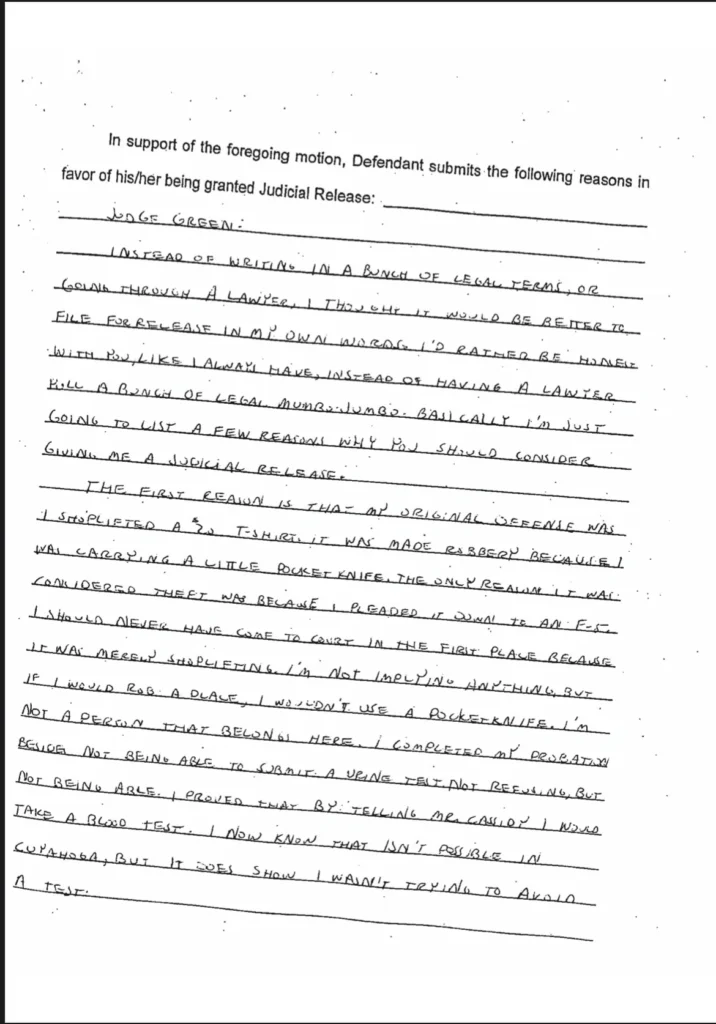
Transcript Below 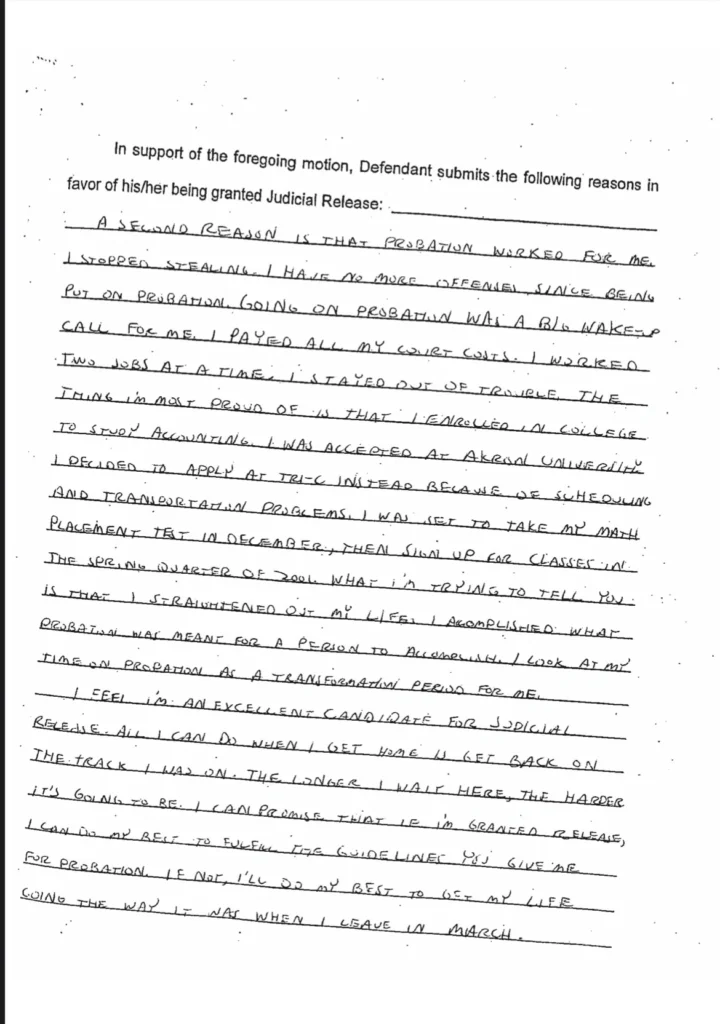
Transcript Below 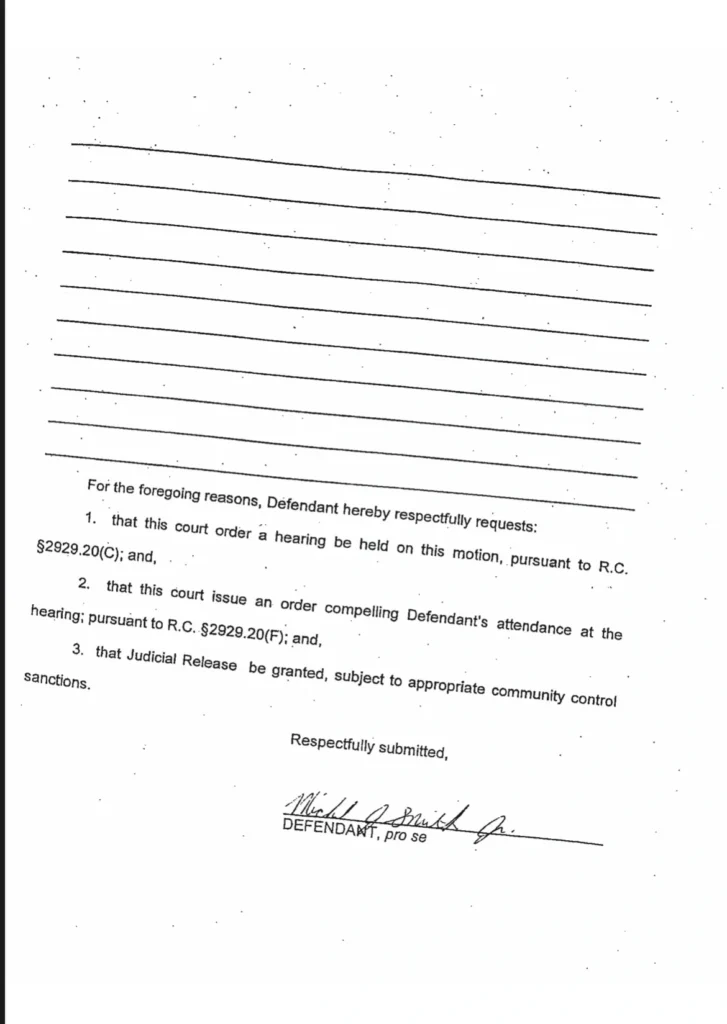
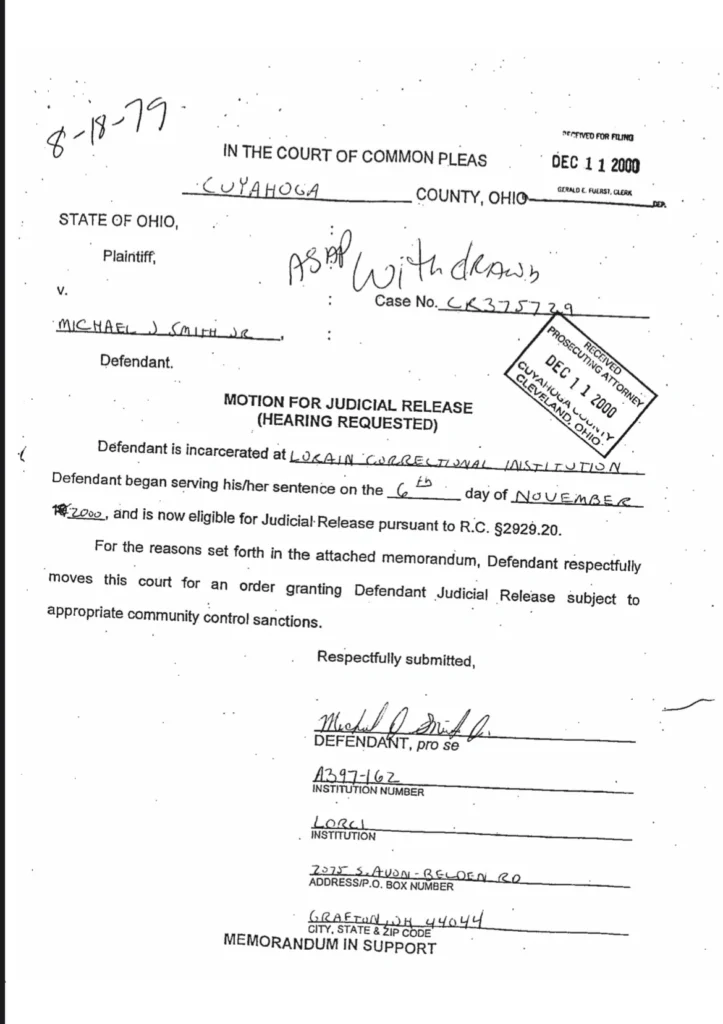
“Judge Green:
Instead of writing in a bunch of legal terms, or going through a lawyer, I thought it would be better to file for release in my own words. I’d rather be honest with you, like I always have, instead of having a lawyer pull a bunch of legal mumbo-jumbo. Basically I’m just going to list a few reasons why you should consider giving me a Judicial Release.
The first reason is that my original offense was I shoplifted a $20 t-shirt. It was made robbery because I was carrying a little pocketknife. The only reason it was considered theft was because I pleaded it down to an f-5. I should never have come to court in the first place because it was merely shoplifting. I’m not implying anything, but if I would rob a place, I wouldn’t use a pocketknife. I’m not a person who belongs here. I completed my probation besides not being able to submit a urine test. Not refusing, but not being able. I proved that by telling Mr. Cassidy I would take a blood test. I now know that isn’t possible in Cuyahoga, but it does show I wasn’t trying to avoid a test.
A second reason is that probation worked for me. I stopped stealing. I have no more offenses since being put on probation. Going on probation was a big wake-up call for me. I payed [sic] all my court costs. I worked two jobs at a time. I stayed out of trouble. The thing I’m most proud of is that I enrolled in college to study accounting. I was accepted at Akron University. I decided to apply at Tri-C instead because of scheduling and transportation problems. I was set to take my math placement test in December, then sign up for classes in the spring quarter of 2001. What I’m trying to tell you is that I straightened out my life. I accomplished what probation was meant for a person to accomplish. I look at my time on probation as a transformation period for me.
I feel I’m an excellent candidate for Judicial Release. All I can do when I get home is get back on the track I was on. The longer I wait here, the harder it’s going to be. I can promise that if I’m granted release, I can do my best to fulfill the guidelines you gave me for probation. If not, I’ll do my best to get my life going the way it was when I leave in March.”
